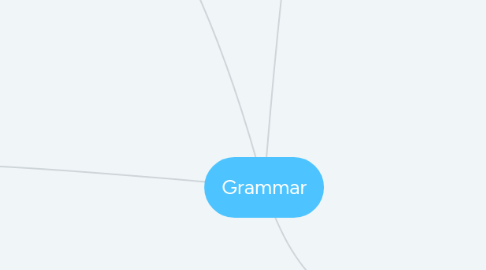
1. Adjectives and Adverbs
1.1. Adjective: is describe and limit noun or pronoun.
1.1.1. He is a boy.
1.1.1.1. He is a handsome Boy.
1.1.2. I am a student.
1.1.2.1. I am a smart student.
1.1.3. They are eating lunch.
1.1.3.1. They are eating delicious lunch.
1.1.4. Notice: adjective can not decribe the action verb.
1.2. Adverb: is decribe or modify verbs,adjectives,or other adverbs.
1.2.1. i am running.
1.2.1.1. i am running slowly.
1.2.2. He is reading.
1.2.2.1. He is reading carefully.
1.2.3. I am playing games.
1.2.3.1. i am gladly playing games.
1.2.4. If an Adverb modifies a verb, it can place in any one of the following positions.
1.2.5. Do not place an adverb between a verb and its object.
1.3. Why it is useful:Make the details of the sentence clearer.
2. Roots,Prefixes,and Suffixes
2.1. Roots: is original words most of it is simple words.
2.2. Prefixes: before the words, to decribe or change the words‘s meaning’.
2.2.1. dis:not
2.2.2. pre: before
2.2.3. re: again
2.3. Suffixes: after the words, to change the meaning of words and usually change.
2.3.1. -al:from noun to adjective
2.3.1.1. Nation——National
2.3.2. -ly:from adjective to adverb
2.3.2.1. Beautiful——Beautifully
2.3.3. -er:represent a man who has what job
2.3.3.1. employ——employer
2.4. Why it is useful: For readers, it is easier to understand the meaning of words and reduce the number of words.
3. Articles and Prepositions
3.1. Articles: correct and polished to use prepositions include a, an, the.
3.1.1. A student needs to go to school.
3.1.2. An employee was been fired.
3.1.3. The door is closed.
3.2. Intangible or abstract nouns:For instance: love, life,hope, beauty, hate do not needs any article.
3.2.1. The life is so hard.
3.2.1.1. Life is so hard.
3.2.2. The hope can encourage people.
3.2.2.1. Hope can encourage people.
3.2.3. The love can make people blind.
3.2.3.1. Love make people blind.
3.3. Using articles : when first time using a noun, should use a or an. after that use the.
3.3.1. An iphone so good, but the iphone's price is also so high.
3.3.2. A mouse is stay on the table, A cat is watching the mouse in other side.
3.3.3. A singer singing on the street, many audience is listening the singer's song.
3.4. Using prepositions A preposition always has an oject which is a noun or pharse. At the begining of a sentence, the prepositional phrase is usually followed by a comma.
3.4.1. After 10 pm, i arrieved Toronto.
3.4.2. The story of his experience is amazing.
3.4.3. we saw the tree above the shop store.
3.5. prepositions unsing for time: year, mouth using in, date using on, time using at.
3.5.1. I born in May,2018.
3.5.2. I bron on May 22, 2018.
3.5.3. I born at 10 AM on May 22,2018.
3.6. Why it is useful: It can make sentence more clear and can indicate the state of a sentence description object.
4. Verb Tenses and Irregular Forms
4.1. Simple Tense: When an action or state happens.
4.1.1. I love learning.
4.1.2. Learning makes me happy.
4.1.3. I dislike someone who do not like study.
4.2. Perfect Tense: An action or state is finished.
4.2.1. I finished today's course.
4.2.2. He cooked lunch in kitchen.
4.2.3. They finished their homework.
4.3. Past perfect tense: An action or state finished in the past.
4.3.1. He had cooked lunch yesterday.
4.3.2. I had my grads 2 day ago.
4.3.3. They had finished their homework last night.
4.4. Future Perfect tense: An action or state will happened in the future.
4.4.1. He will go to shop store.
4.4.2. I will ask you some question.
4.4.3. They will show you some example.
4.5. Using the present perfect with for and since: to show time is passed.
4.5.1. I lived in Brantford science 2017.
4.5.2. He started playing basketball science when he was 8 years old.
4.5.3. They have kept fit for 10 years.
